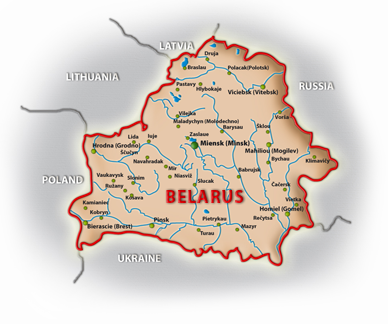Belarus traders protest, government announces "anti-crisis" plan
 Minsk - Thousands of Belarusian small traders took to the streets on Monday as a senior government official announced a phased plan to fight the effects of the world financial crisis.
Minsk - Thousands of Belarusian small traders took to the streets on Monday as a senior government official announced a phased plan to fight the effects of the world financial crisis.
More than 2,000 protestors gathered in central Minsk to demonstrate against the government's intention to make illegal most small-scale goods imports.
Most of authoritarian Belarus' economy is owned and run by the state. Small-scale import/export trade is one of the few sectors of the economy where free enterprise is allowed.
Demonstrators carried banners saying "New rules for importers are a worthy contribution to the world crisis," "Liberalisation is the path to the survival of our country," and "You don't need our taxes, cancel them!"
The gathering near the Academy of Sciences was loud but peaceful, with demonstrators chanting "Work!" and "Freedom to businessmen!"
Police presence was moderate. The demonstrator crowd at some locations obstructed automobile traffic, a violation giving Belarus' police a legal right to arrest, but law enforcers by mid-afternoon had made no move to interfere with the march.
Belarusian President Aleksander Lukashenko last month said that beginning 2009 Belarusian importers would have to pay import duties on all goods brought into the country excepting those produced in Russia, no matter the value of the goods.
The executive order was aimed at generating tax revenues from small-scale Belarusian traders carrying predominantly Chinese consumer products in luggage, and avoiding import tax by declaring the goods personal effects.
Andriy Tur, Belarus' Vice Economy Minister, later in the day announced a package of reforms aimed at lessening the impact of the world financial crisis on the Belarusian economy, but had no response to the small traders' call they be excepted from import tax.
Belarus mostly state-run economy has suffered badly from world financial crisis, with production down as much as 40 per cent in heavy industry, and inflation rocketing, the Belapan news agency reported.
Heavy and light industry run by the government will among other benefits receive energy price subsidies, owed tax reductions, import and export duty breaks, Tur said.
Belarus' national bank in addition will reduce or even cancel interest owed by government enterprises on most loans, and the national government will provide major banks a cash infusion to keep credit available, he added.
A yet-to-be-formed government leasing company will make major Belarusian machine exports such as tractors and harvesters available to customers at more affordable rates, Tur said.
Tur as is common for government figures in authoritarian Belarus did not give an estimated cost of the "anti-crisis programme."
One measure, a plan for a spike to import duties particularly on food and machinery imports into Belarus, directly contradicted long- term Belarusian police to reduce trade barriers with Russia.
The assistance programme also, as far as Tur described it, contained no clear steps to overcome traditional Belarusian inability to pay for Russian energy imports, a chronic problem now worsened by the plummeting value of the Belarusian rouble. (dpa)